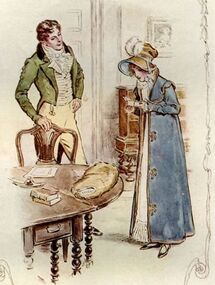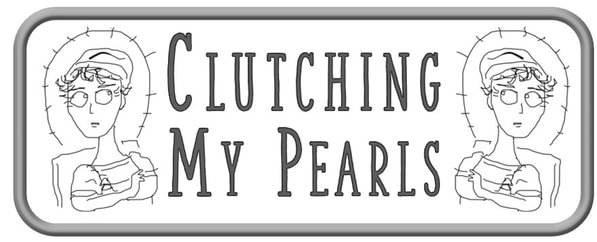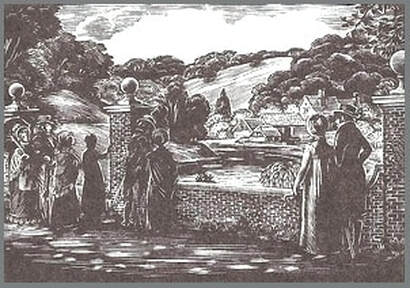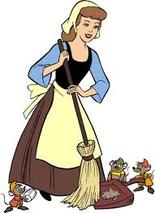| This blog explores social attitudes in Jane Austen's time, discusses her novels, reviews forgotten 18th century novels, and throws some occasional shade at the modern academy. The introductory post is here. My "six simple questions for academics" post is here. |
| She alone was sad and insignificant: she had no share in anything; she might go or stay; she might be in the midst of their noise, or retreat from it to the solitude of the East room, without being seen or missed. She could almost think anything would have been preferable to this. -- Fanny Price at her most Eeyore-ish in Mansfield Park |
 Edmund and Fanny in the East room
Edmund and Fanny in the East room Once that narrative interlude ends, we return to Fanny's conundrum. Should she acquiesce and join in the private theatricals, which she disapproves of on the grounds of propriety, and in addition, she doesn't want to act? As Fanny is pacing and thinking, Edmund visits her, to tell her he plans to relent and take a part in the play Lover's Vows. He and Fanny both know Sir Thomas would disapprove, so Fanny can't give him her whole-hearted concurrence.
Edmund awkwardly tries to segue out of the uncomfortable disagreement by talking about her books: “[Y]ou will be taking a trip into China, I suppose. How does Lord Macartney go on?” He babbles nervously: “And here are Crabbe’s Tales, and the Idler, at hand to relieve you, if you tire of your great book. I admire your little establishment exceedingly; and as soon as I am gone, you will empty your head of all this nonsense… and sit comfortably down to your table. But do not stay here to be cold.” And poof! he’s out the door, down the stairs and down the hill to Mary Crawford at the parsonage...





 RSS Feed
RSS Feed